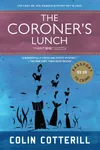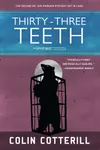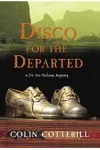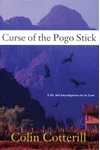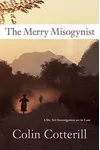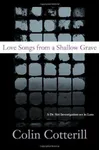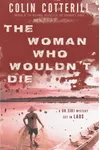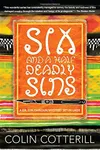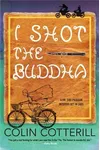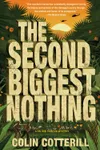Step into the quirky, mystical world of Dr. Siri Paiboun, where a septuagenarian coroner solves crimes in 1970s communist Laos with a blend of wit, science, and shamanic visions. Colin Cotterill’s Dr. Siri Paiboun series is a delightful mix of mystery, history, and supernatural charm, offering a rare glimpse into a vibrant yet turbulent era. With its colorful cast and Laotian backdrop, this series is a hidden gem for fans of cozy crime with a cultural twist.
From the bustling streets of Vientiane to remote mountain villages, Dr. Siri navigates a world of political intrigue and ancient traditions, making every case a journey into the heart of Laos. Ready to meet a coroner who chats with spirits? Let’s explore this unforgettable series!
How Dr. Siri Paiboun Began
Born in London, Colin Cotterill spent years in Laos working with NGOs, immersing himself in its culture and history. This experience inspired the Dr. Siri Paiboun series, launched in 2004 with The Coroner’s Lunch. Cotterill envisioned a reluctant hero—a 72-year-old doctor forced into the role of national coroner after the 1975 communist takeover. Infusing his tales with Laotian folklore and his signature humor, Cotterill crafted a series that’s as educational as it is entertaining.
Drawing from his time in Southeast Asia, Cotterill wove real historical events, like the Pathet Lao’s rise, into fictional mysteries. His goal? To shine a light on Laos’ rich heritage while delivering page-turning whodunits.
The Heart of Dr. Siri Paiboun
The series spans 15 books, each brimming with clever plots and cultural depth. In The Coroner’s Lunch (2004), Dr. Siri investigates a politician’s wife’s suspicious death, uncovering secrets amid bureaucratic chaos. Thirty-Three Teeth (2005) sees him tackling murders linked to a missing bear, blending shamanic visions with forensic clues. Disco for the Departed (2006) takes Siri to a remote province to probe a body found in a cave, tying into Laos’ revolutionary past. Don’t Eat Me (2018) mixes filmmaking antics with a bizarre skeleton discovery, showcasing the series’ quirky charm.
Themes of resilience, community, and cultural identity run deep. Dr. Siri, possessed by a 1,000-year-old Hmong shaman, bridgesmeets a colorful cast, including Madame Daeng, his spirited wife, and Inspector Phosy, a dogged policeman. The 1970s Laos setting—post-revolutionary and steeped in superstition—grounds the series, while Cotterill’s witty prose and light tone keep it accessible. Supernatural elements, like Siri’s spirit visions, feel intuitive, reflecting Laotian beliefs rather than fantasy.
The series’ strength lies in its balance of cozy mystery tropes with serious undertones of political oppression and post-war recovery. Each book stands alone, but the evolving lives of Siri and his crew reward loyal readers.
Why Dr. Siri Paiboun Resonates
The Dr. Siri Paiboun series has carved a niche in crime fiction, earning accolades like the 2009 CWA Dagger in the Library award. Fans cherish its vivid portrayal of Laos, a country rarely featured in Western literature, and its blend of humor and heart. Cotterill’s respectful depiction of Laotian culture and history educates without preaching, while Siri’s irreverent defiance of authority resonates universally.
With over 47,000 Goodreads ratings averaging 4.1 stars, the series has a dedicated following. Its legacy lies in proving that lesser-known settings can captivate global audiences, inspiring readers to explore Laotian history and folklore. For cozy mystery lovers, it’s a refreshing departure from familiar locales.
- First Book: The Coroner’s Lunch (2004)
- Total Books: 15, concluding with The Delightful Life of a Suicide Pilot (2020)
- Awards: 2009 CWA Dagger in the Library, 2007 Prix SNCF Du Polar
- Word Count: ~1.16 million words across the series
Grab The Coroner’s Lunch and dive into Dr. Siri Paiboun’s world of mystery, spirits, and Laotian charm. Your next favorite sleuth is waiting!
